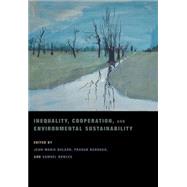Inequality, Cooperation, and Environmental Sustainability
, by Baland, Jean-Marie- ISBN: 9780691128795 | 0691128790
- Cover: Hardcover
- Copyright: 11/13/2006
Would improving the economic, social, and political condition of the world's disadvantaged people slow--or accelerate--environmental degradation? InInequality, Cooperation, and Environmental Sustainability, leading social scientists provide answers to this difficult question, using new research on the impact of inequality on environmental sustainability. The contributors' findings suggest that inequality may exacerbate environmental problems by making it more difficult for individuals, groups, and nations to cooperate in the design and enforcement of measures to protect natural assets ranging from local commons to the global climate. But a more equal division of a given amount of income could speed the process of environmental degradation--for example, if the poor value the preservation of the environment less than the rich do, or if the consumption patterns of the poor entail proportionally greater environmental degradation than that of the rich. The contributors also find that the effect of inequality on cooperation and environmental sustainability depends critically on the economic and political institutions governing how people interact, and the technical nature of the environmental asset in question. The contributors focus on the local commons because many of the world's poorest depend on them for their livelihoods, and recent research has made great strides in showing how private incentives, group governance, and government policies might combine to protect these resources.






